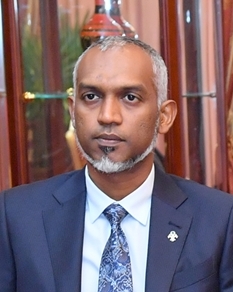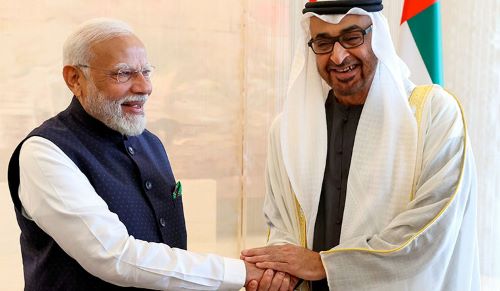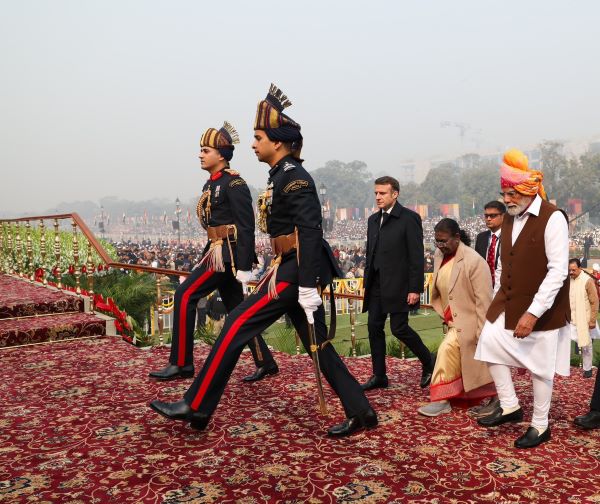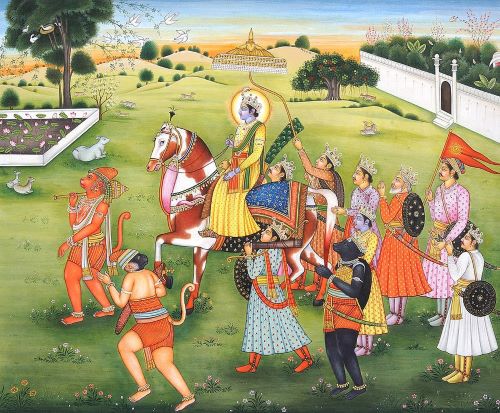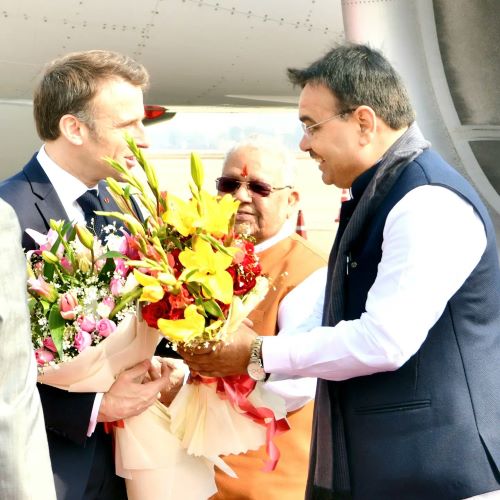Maldives has elected a new president on September 30, and has voted for the opposition candidate, Mohamed Muizzu, who received 54 percent of the vote against the incumbent president Ibrahim Solih’s 46 percent. With the change in leadership in Maldives, there are apprehensions that the new president might follow a foreign policy more inclined towards China and aim to reduce the level of India’s assistance to the country.
The new president needs to rethink its “India Out” policy in the light of latest global developments. India has always stood by the side of Maldives as a friendly neighbour and as India’s clout grows at the international stage, it would not be a sensible decision to banish New Delhi altogether. Antagonising a regional power, which is a good friend too, without any concrete reason would be a naive diplomatic decision on part of Muizzu and would have long term repercussions. Maldives has much to gain from India, which is a time tested ally.
Muizzu, from the Progressive Alliance, a coalition of the Progressive Party of Maldives (PPM) and the People’s National Congress (PNC) – is considered to be pro-China, and it is believed that Maldives will soon have a pro-China shift in its foreign policy. Afterall Muizzu won the election on the plank of “Out India” campaign. One of the issues during election campaign was close security relationship with India. Now the incoming Muizzu government faces the uphill task of balancing his countries ties with both India and China.
India has always been the first responder to Maldives in times of not only emergency but also long-term capacity building initiatives. Both countries are vibrant democracies. These may well be the reasons why India and Maldives are natural partners in need and in deed. Under PM Modi and outgoing Maldives president Ibrahim Solih, the ties between the two nations reached even greater momentum as both democracies signed a number of agreements.
India has been closely involved in the capacity building and capability enhancement endeavors for defence and security infrastructure in Maldives. India reaffirmed its role as a net security provider by gifting Coast Guard Ship Huravee in 2006 to Maldives National Defence Force (MNDF) for combating transnational crimes and enhancing coastal surveillance. In May 2023, India handed over a replacement ship of Trikant-class to MNDF. India also provides regular training to MNDF personnel at various Indian establishments. Humanitarian assistance such as medical evacuations, search and rescue missions and regular maritime patrolling are part of the close relationship.
Humanitarian assistance is one of the key activities that are undertaken by the Indian aviation team under the leadership of MNDF. According to a report in the Hindustan Times, in the last five years, Indian aircraft have saved more than 500 precious lives through medical evacuations from all across Maldives even in the difficult weather conditions.
Maldives President-elect Mohammed Muizzu has made the withdrawal of Indian troops from the Island nation as his topmost priority as he won the electoral mandate on “India Out” campaign. He made his intentions evident when Indian Ambassador to Maldives, Monu Mahawar called on the President-elect on October 4. Muizzu’s priority one after he swears in as President of Maldives on November 17 is asking Indian troops to leave within a week.
Even though the President-elect is following the footsteps of his mentor former president Abdulla Yameen on withdrawal of Indian troops and proximity to China, the fact is that the Indian contingent was present in Maldives for disaster relief and not for launching any overt or covert military operations either within or outside the country.
Muizzu has declared that Maldives will have a “pro-Maldives” foreign policy strategy. During the pre-election campaign, Muizzu pledged to send a small contingent of Indian military personnel home, which he reiterated after the election.
Although the “India-Out” slogan may have aroused nationalist fervour but Muizzu may face some difficult choices in order to implement this. The scope of Indian maritime security assistance to Maldives is huge. It is in Maldives interest to continue to pursue security arrangements with India that fit the “pro-Maldives” strategy.
Maldives is located south of India’s Lakshadweep Islands in the Indian Ocean. Both nations established diplomatic relations after the independence of Maldives from British rule in 1966.India was one of the first nations to recognise Maldives’ independence. Since then, India and Maldives have developed close strategic, military, economic and cultural relations. India has supported Maldives’ policy of keeping regional issues and struggles away from itself, and the latter has seen friendship with India as a source of aid
India and Maldives share ethnic, linguistic, cultural, religious and commercial links and enjoy close, cordial and multi-dimensional relations. India was among the first to recognise Maldives after its independence in 1965 and to establish diplomatic relations with the country.
India is the major provider of regional security and has also been the principal source of assistance in building Maldives’ maritime security capabilities. The new government will need to carefully think how “India Out” campaign would prove detrimental to the country’s long term interests. India is a global power now with strong standing at major forums and in the region. Antagonizing an emerging power like India for short term gains would not be a ‘pro Maldives strategy’.

